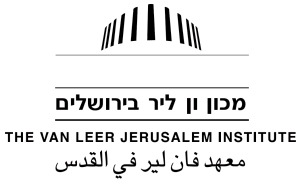[button style=’blue’ url=’tlv1.fm/telavivreview’ target=’_blank’]Subscribe To The Podcast[/button] [button style=’blue’ url=’tlv1.fm/content/the-tel-aviv-review/’ target=’_blank’]Previous Episodes[/button]
Dr. Raz Zimmt is the encyclopedia of policy analysis of Iran. From poring over social media conversations in Persian to analyzing statements, policy, and action of political leaders, his many papers and articles touch every topic. Today’s episode interviews him about Iran’s regional goals and foreign policy, the new and changing alliances of the Middle East, sectarian divides, and domestic politics. Find out what the Iranian public is saying about their leaders, why Hamas threw Iran for a loop, and what Iran thinks about Israel, the deal, and the bomb.
This season of the Tel Aviv Review is made possible by The Van Leer Jerusalem Institute, which promotes humanistic, democratic, and liberal values in the social discourse in Israel.
[/infobox]






As I recall, Revolutionary Guard entry into the civil economy began with the encouragement of the previous President. So entry was into a rather no growth economy, and I’d say it quite likely that RG positions were purchased partly through intimidation; that is, RG presence was one of dominance. Opening the economy, then, introducing new actors or enabling rivals to expand via credit, could well harm RG’s relative standing, dampening their ability to intimidate. So withdrawing from the UN package would improve RG standing internally on two fronts: in channeling resources to military bomb development, and retaining RG relative share of the economy while appearing as protector of the people. Since the a broken deal would as well cripple the reputation of the present Administration, emboldening hard liners in civil politics, there would seem naught but advantage to seeing the deal scuttled for RG and other hardliners. (That the Supreme Leader sanctioned the deal against RG recommendations suggests he tries to balance other political forces; recall President A was harshly reprimanded by the SL in his last term, apparently for moving beyond his station in the SL’s eyes. So the SL might want to continue the UN package simply to keep the RG, whose influence in foreign affairs has risen with involvement in Syria, checked.)
The few times I have seen the present Iranian Foreign Minister speak he invariably recounts the failure of the international community, including the UN, to take Iraqi use of chemical weapons against Iran seriously. As well, of course, he notes US aid to Iraq in that war. He seems to be saying that there could be real popular appeal for a harder Iranian stance if the West, especially the US, is seen as backing out of its promise via the UN deal. I read the present Iranian Administration as not pro West or US but opposed to RG dominance beyond any role of military agent under civilian or religious command. In this view, the RG echoes military dictatorships of the past in the region, including Assad’s. The Presidency is the only popular measure in politics, and the FM may be obliquely warning that that measure could become a puppet to RG kinds of interest if the deal is seriously abandoned. Ironically, the Supreme Leader might want to avoid this outcome as well; he sits better as arbitrator over two parts of the nation, civil society and economy vs the military.